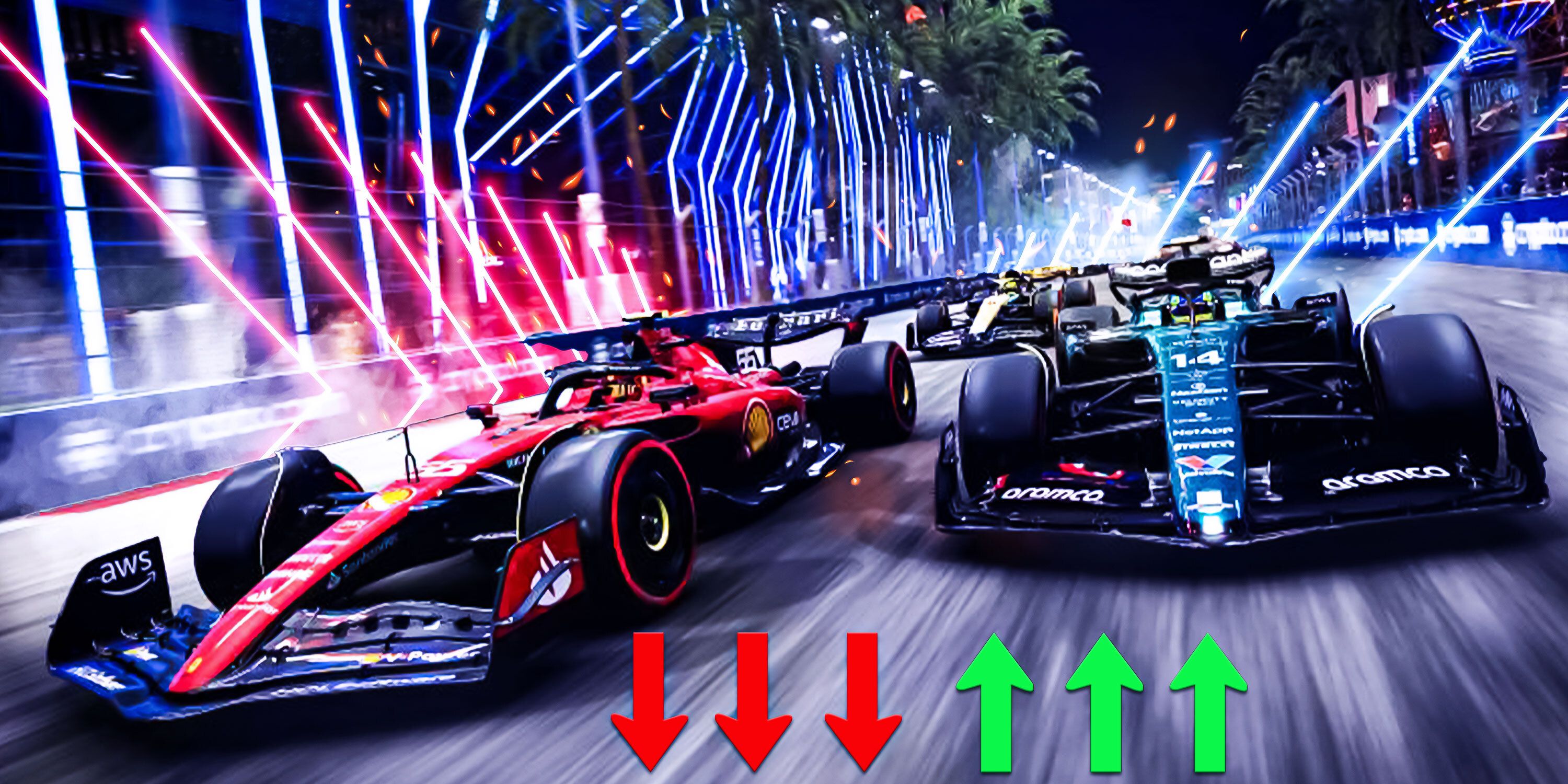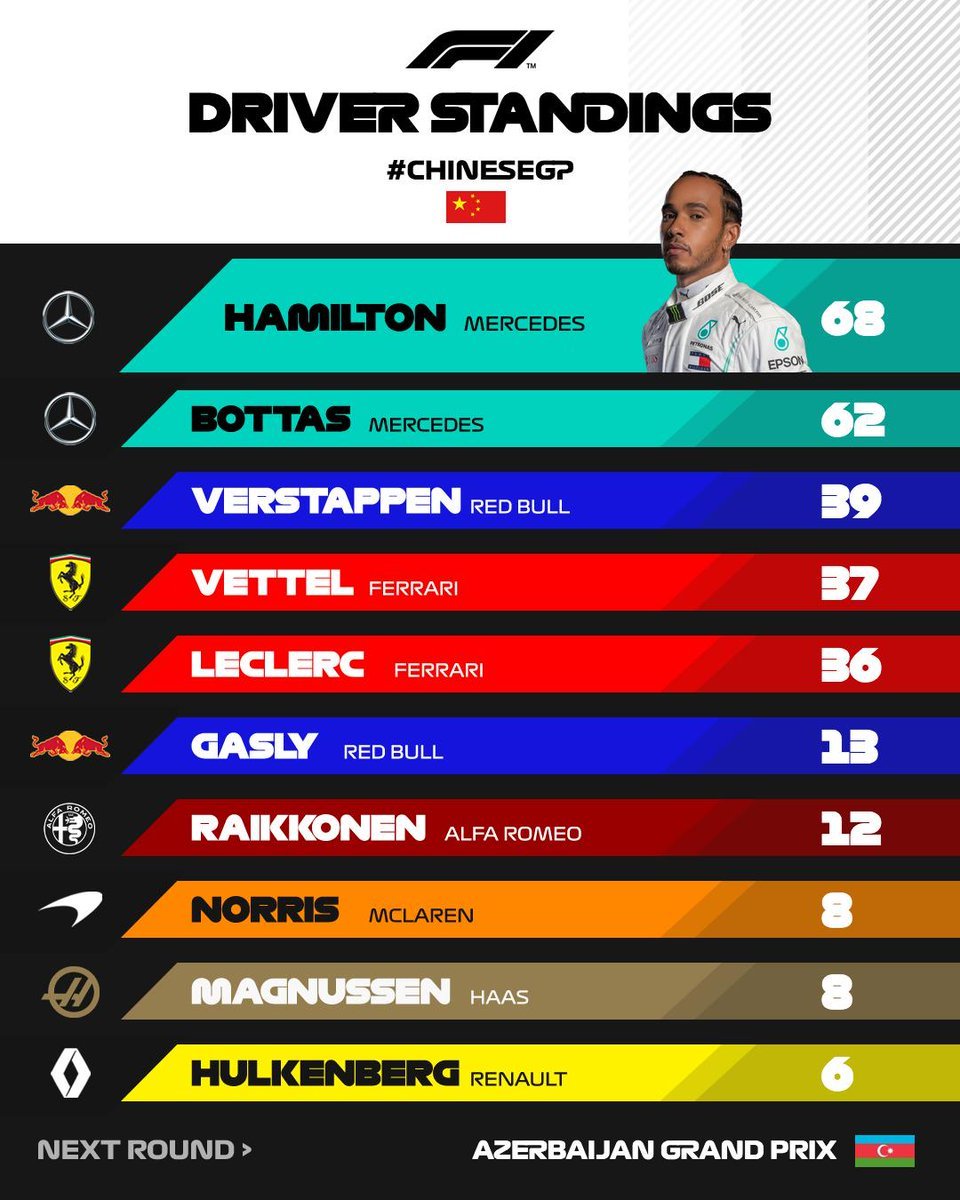Formula 1, or F1, is one of the most prestigious and competitive motorsport championships in the world, and at its core lies the F1 points system, which determines the outcome of the championship. This system plays a crucial role in deciding who emerges victorious as the driver and constructor champions. Understanding the nuances of the F1 points system is essential for fans who wish to follow the sport more closely and appreciate the intricacies of the championship battles.
The F1 points system has undergone several transformations since its inception in 1950. These changes have been designed to keep the competition balanced and exciting, while also rewarding drivers and teams for their performances on the track. As the sport evolves, so does the points system, ensuring that it remains relevant and fair.
In this article, we will delve into the mechanics of the F1 points system, exploring its history, how it works, and its implications for drivers and teams. Whether you're a seasoned F1 enthusiast or a newcomer to the sport, this guide will provide you with all the information you need to understand the F1 points system in detail.
Read also:Shaunie Oneal Height A Comprehensive Guide To Her Life Career And Influence
Table of Contents:
- History of the F1 Points System
- The Current F1 Points System
- Points Distribution by Race Positions
- Fastest Lap Bonus Points
- Double Points Controversy
- Impact on Drivers and Teams
- Race Strategy and Points
- Future of the F1 Points System
- Key Statistics and Trends
- Conclusion
History of the F1 Points System
Early Years and Evolution
When Formula 1 began in 1950, the points system was relatively simple compared to today's standards. Initially, only the top five finishers in a race were awarded points, with the winner receiving 8 points, the second-place driver 6 points, and so on. This system remained unchanged until 1960, when the number of scoring positions was expanded to six.
Over the years, the F1 points system has been modified multiple times to adapt to the changing dynamics of the sport. In 1991, the number of scoring positions was increased to the top six drivers, and in 2010, it was expanded again to include the top ten finishers. These changes were made to ensure that more drivers and teams had a chance to earn points and stay competitive throughout the season.
The Current F1 Points System
How It Works
The current F1 points system was introduced in 2010 and has remained largely unchanged since then. Under this system, points are awarded to the top ten finishers in each race, with the winner receiving 25 points, the second-place driver 18 points, and so on, down to 1 point for tenth place. This system ensures that even drivers who finish in lower positions can still contribute to their team's overall standings.
Points Distribution by Race Positions
Here is a breakdown of the points distribution for the top ten positions in an F1 race:
- 1st place: 25 points
- 2nd place: 18 points
- 3rd place: 15 points
- 4th place: 12 points
- 5th place: 10 points
- 6th place: 8 points
- 7th place: 6 points
- 8th place: 4 points
- 9th place: 2 points
- 10th place: 1 point
Fastest Lap Bonus Points
Additional Points for Fastest Lap
In 2022, Formula 1 introduced an additional point for the driver who sets the fastest lap during the race, provided they finish in the top ten. This change was made to encourage drivers to push harder throughout the race and reward those who achieve exceptional lap times. The fastest lap bonus point adds an extra layer of strategy and excitement to the competition.
Read also:Viki Knott Married A Comprehensive Guide To Her Life Career And Personal Journey
Double Points Controversy
2014 Abu Dhabi Grand Prix
One of the most controversial changes to the F1 points system occurred in 2014 when double points were awarded at the final race of the season in Abu Dhabi. This decision was met with criticism from fans and teams alike, as it was seen as an unfair advantage for drivers who performed well in the last race. Since then, the double points rule has not been implemented again, and there are no plans to reintroduce it in the near future.
Impact on Drivers and Teams
Strategic Importance
The F1 points system has a significant impact on how drivers and teams approach each race. Teams often develop strategies that prioritize finishing in the points, even if it means sacrificing a higher position. For drivers, earning points consistently throughout the season is crucial for maintaining their championship hopes and securing their place in the sport.
Race Strategy and Points
Key Considerations
Race strategy plays a vital role in maximizing points under the current F1 points system. Teams must carefully consider factors such as tire wear, fuel consumption, and pit stop timing to ensure their drivers finish in the top ten. Additionally, teams may choose to focus on specific races where they believe they have a competitive advantage, allowing them to accumulate more points and improve their standings.
Future of the F1 Points System
Possible Changes
As Formula 1 continues to evolve, there is always the possibility of changes to the points system. Some suggestions include introducing points for qualifying performance or expanding the number of scoring positions. However, any changes would need to be carefully considered to ensure they enhance the sport without compromising its integrity.
Key Statistics and Trends
Insights from the Points System
Over the years, the F1 points system has produced some fascinating statistics and trends. For example, Lewis Hamilton holds the record for the most points scored in a single season, with 413 points in 2019. Additionally, the introduction of the top ten scoring system in 2010 has led to a more balanced distribution of points among drivers and teams, making the championship battles more competitive.
Data from the F1 points system also highlights the importance of consistency in achieving success in the sport. Drivers who consistently finish in the points are more likely to challenge for the championship, even if they do not win every race.
Conclusion
The F1 points system is a critical component of the Formula 1 championship, influencing how drivers and teams approach each race and determining the ultimate champions. From its humble beginnings in 1950 to the sophisticated system in place today, the F1 points system has evolved to meet the demands of a fast-paced and competitive sport.
As we have seen, understanding the F1 points system is essential for anyone who wishes to appreciate the nuances of the championship battles. Whether you're analyzing race strategies or predicting championship outcomes, the points system provides valuable insights into the world of Formula 1.
We encourage you to share your thoughts on the F1 points system in the comments below. Do you think the current system is fair, or are there changes you would like to see? Don't forget to explore other articles on our site for more in-depth coverage of Formula 1 and other motorsports topics.


